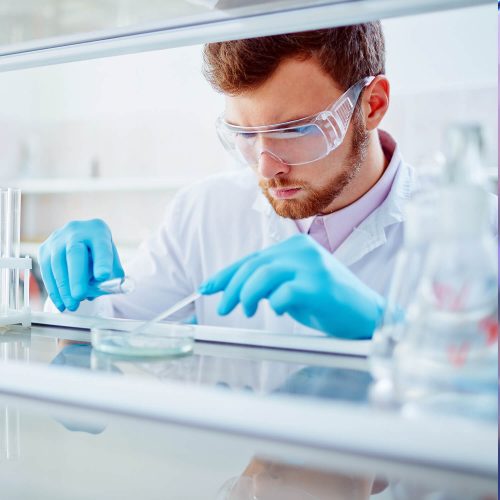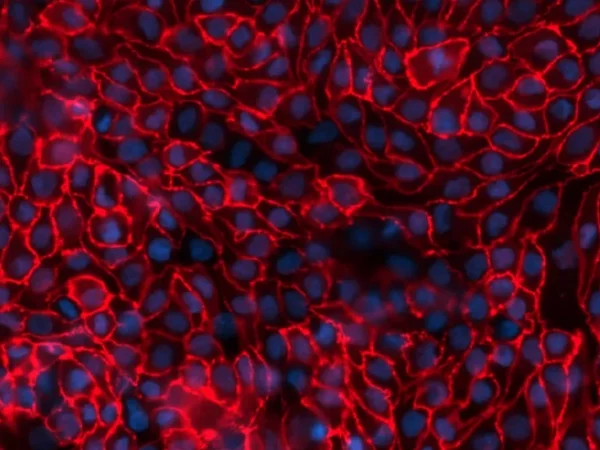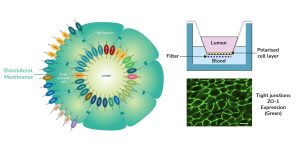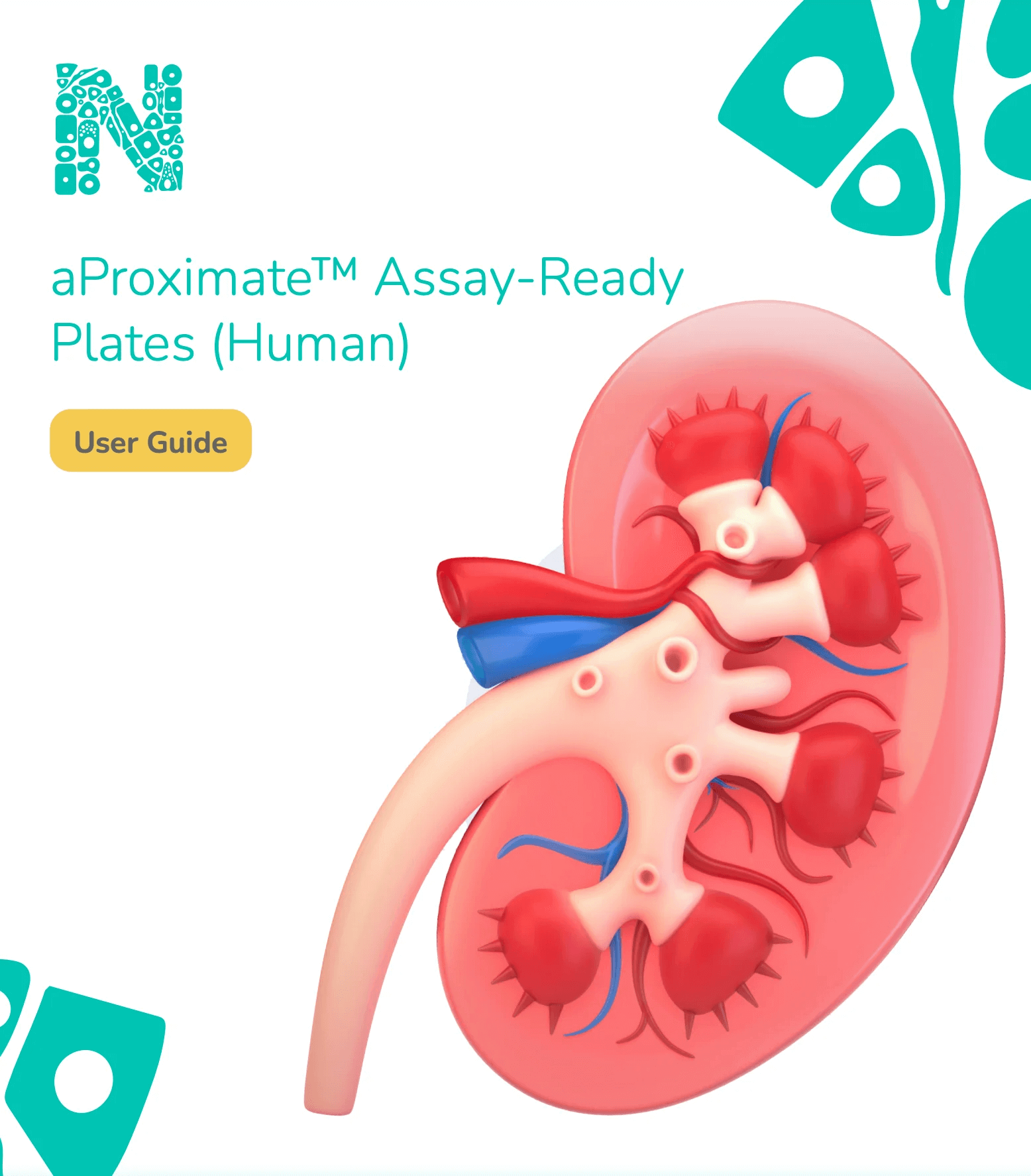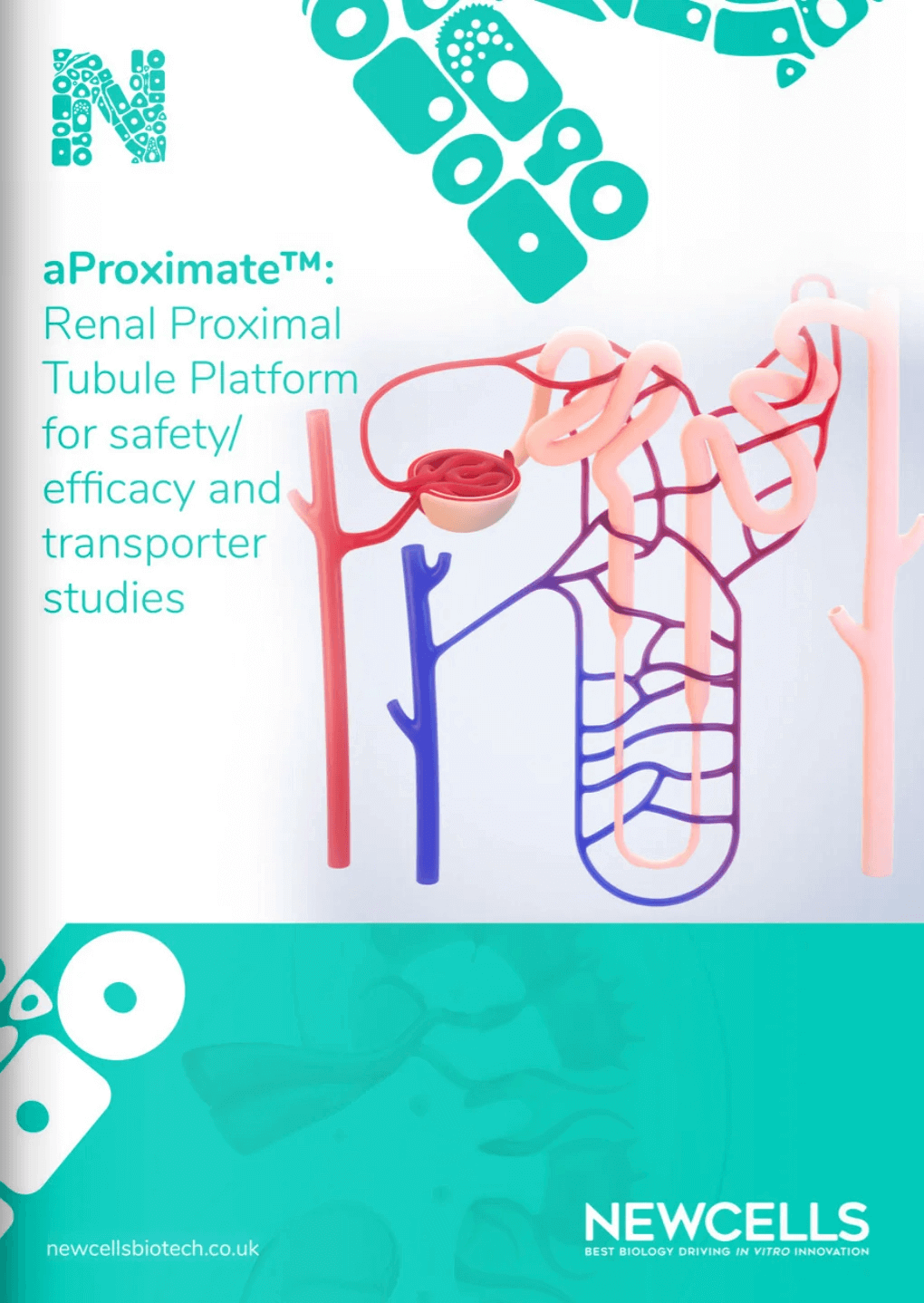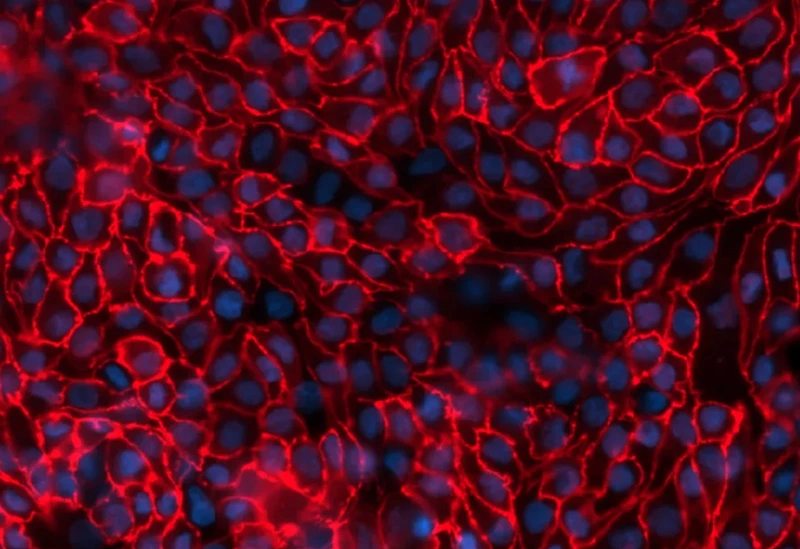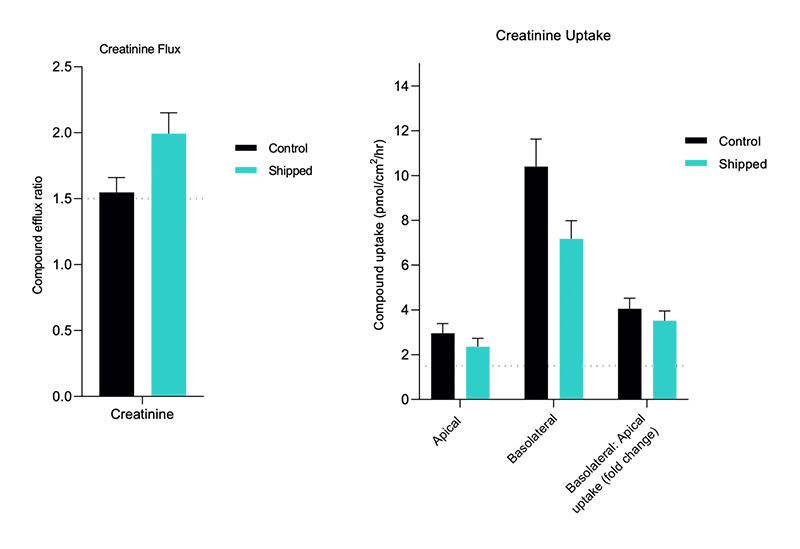Primary kidney proximal tubule cell model for safety/efficacy and transporter studies
aProximate™ is one of the most advanced, near physiological, in vitro, kidney proximal tubule cell (PTC) models offered as part of our kidney transporter models for studies of kidney organoids. One of many epithelial cells, specialised for reabsorption in the kidney, aProximate™ proximal tubule cells are derived from fresh human kidney tissue and grown on Transwells®, where they remain as a functional polarised cell layer that forms tight junctions. In contrast to other primary and immortalised kidney proximal tubule cells in culture, aProximate™ proximal tubule cells retain high expression of the key transporters involved in drug handling including Megalin and Cubilin, which is ideal for use in a drug transporter interaction and DDI study.
Studies using aProximate™ primary kidney proximal tubule cells can give you a detailed mechanistic understanding of how new drugs are transported and eliminated through the kidney and how they interact with other drugs prescribed to the target patient population to help mitigate risk of kidney toxicity.
Human pluripotent stem cells can be differentiated in a lab to become proximal tubule-like cells, which are useful for kidney research, nephrotoxicity testing and kidney disease modelling. Primary kidney proximal tubule cells are used to conduct studies in the kidney, rather than stem cells.
Applications
- Drug transporter interactions and DDI study
- Cross species comparison
- Kidney toxicity
- Kidney disease modelling
Available analytical readouts
- Flux and net transport measurements
- Measurement of intracellular drug and metabolite concentrations
- Identification of transporter-mediated drug-drug interactions
- Early renal damage biomarkers
- Cell viability
